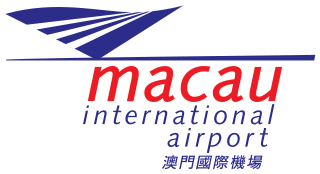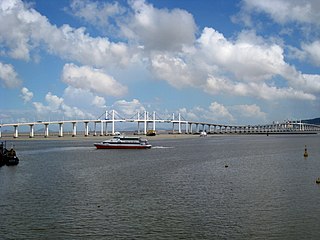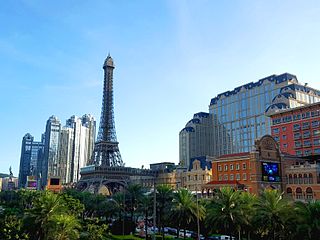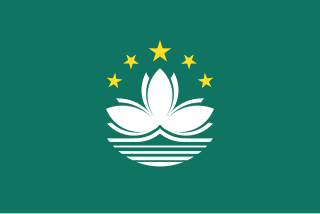The following is an incomplete List of bridges and tunnels in Macau , China.
The following is an incomplete List of bridges and tunnels in Macau , China.
As parts of Macau are islands and surrounded by islands in mainland China, bridges are a critical infrastructures in the city.
| bridge | opened | length (km) | franchise lasts until | owner/operator | cost for Macau pataca | vehicles daily | daily capacity |
|---|---|---|---|---|---|---|---|
| Amizade Bridge or Ponte da Amizade | 1994 | 4.7 | N/A | Government of Macau | toll free | ||
| Governador Nobre de Carvalho Bridge or Ponte Governador Nobre de Carvalho | 1974 | 2.6 | N/A | Government of Macau | toll free | ||
| Sai Van Bridge or Ponte de Sai Van | 2004 | 2.2 | N/A | Government of Macau | toll free | ||
| Lótus Bridge or Ponte Flor de Lótus | 1999 | 1.78 | N/A | Government of Macau | toll free | ||
| Fourth Link | Planned | N/A | N/A | Government of Macau | toll free |
| bridge-causeway-tunnel | opened | length (km) | owner/operator | cost for Renminbi | vehicles daily | daily capacity |
|---|---|---|---|---|---|---|
| Hong Kong-Zhuhai-Macau Bridge Ponte Hong Kong-Zhuhai-Macau | October 2018 (tentative) | 39 | Cars ¥150 Coaches ¥200 Shuttle buses ¥300 Container trucks ¥115 Goods vehicles ¥60 [1] |
Macau had one causeway when Coloane and Taipa were separate islands. The roadway was not a bridge, but a road built on top of the water. The two islands have since been infilled and the former causeway is now an inland roadway.
| roadway | opened | length (km) | owner/operator | cost for Macau pataca | vehicles daily | daily capacity |
|---|---|---|---|---|---|---|
| Taipa-Coloane Causeway - now Estrada do Istmo | 1969 | 2.2 | Government of Macau | toll free |
Macau currently has several tunnels. One connects two neighbourhoods on Macau Peninsula cutoff by hills, and one connects Cotai with University of Macau Hengqin Campus. There are also other tunnels on the island of Taipa.
| bridge | opened | length (km) | owner/operator | cost for Macau pataca | vehicles daily | daily capacity |
|---|---|---|---|---|---|---|
| Guia Hill Tunnel or Túnel da Guia | 1990 | 0.284 | Government of Macau | toll free | ||
| Hengqin Underwater Tunnel or Túnel Subaquático de Hengqin | 2013 | 1.57 | Government of Macau | toll free | ||
| Taipa Tunnel or Túnel da Taipa | Government of Macau | toll free |

Macau is a Special Administrative Region on the southern coast of China. It is located at the south of Guangdong Province, on the tip of the peninsula formed by the Zhujiang estuary on the east and the Xijiang on the west. Macau is situated 60 km (37 mi) west of Hong Kong, and 145 km (90 mi) southwest of Guangzhou, the capital of Guangdong Province. It is situated immediately east and south of Zhuhai.

Transport in Macau includes road, sea, rail and air transport. Road transport is the primary mode of transport within Macau, although a new rail system opened in December 2019 serving the areas of Taipa and Cotai. The main forms of public transport are buses and taxis.

Macau International Airport is an international airport in the special administrative region of Macau, situated at the eastern end of Taipa island and neighbouring waters. It opened for commercial operations on 9 November 1995, during Portuguese administration of the region.

Taipa is an area in Macau, connected to Coloane through the area known as Cotai, which is largely built from reclaimed land. Located on the northern half of the island, Taipa’s population is mostly suburban. Administratively, the boundaries of the traditional civil parish Freguesia de Nossa Senhora do Carmo are mostly coterminous with that of the former Taipa Island, except for a portion of the parish that lies on the island of Hengqin (Montanha), housing the campus of the University of Macau.

Coloane is the southernmost area in Macau, connected to Taipa through the area known as Cotai, which is largely built from reclaimed land. Known as “Lou Wan” in Cantonese, Coloane forms the southern part of Macau. Its population consists of several settlements dotted around the parish, such as Vila de Coloane, Hac Sa, Ká-Hó, and Cheoc Van. Administratively, the boundaries of the traditional civil parish of São Francisco Xavier are coterminous with that of Coloane.

The Macau Peninsula is the historical and most populous part of Macau. It has an area of 8.5 square kilometers (3.3 sq mi) and is geographically connected to Guangdong Province at the northeast through an isthmus 200 meters (660 ft) wide. The peninsula, together with downtown Zhuhai, sits on an island separated from the continent by distributaries of the Pearl River. The Border Gate was built on the northern isthmus. At the south, the peninsula is connected to Taipa Island by three bridges, the Friendship Bridge ; the Macau-Taipa Bridge ; and the Sai Van Bridge . The longest axis extends 4 kilometers (2.5 mi) from the Border Gate to the southwestern edge, Barra (媽閣嘴). There is a western "Inner Harbor" (內港) paralleled by an "Outer Harbor" (外港) to the east. The 93 meters (305 ft) Guia Hill (松山) is the highest point on the peninsula, which has an average elevation of 50 to 75 meters. Many coastal places are reclaimed from the sea. The Historic Centre of Macau, which is entirely on the Macau Peninsula, became a World Heritage Site in 2005.

São Lázaro is the smallest civil parish of Macau, located in the central-east region of the Macau Peninsula. It is surrounded by the parishes of Nossa Senhora de Fátima, Santo António, and Sé.

Tourism is a major industry in Macau. It is famous for the blend of Portuguese and Chinese cultures and its gambling industry, which includes Casino Lisboa, Macau, Sands Macau, The Venetian Macao, and Wynn Macau.

The Amizade Bridge is a four-lane, two-way bridge in Macau that connects Macau Peninsula near the Reservatório and Taipa Island at Pac On.

Cotai is a 5.2-square-kilometer (2.0 sq mi) piece of reclaimed land on the top of the Seac Pai Bay between Taipa and Coloane islands in Macau that has connected two independent islands since 2005. The name, which is a portmanteau of Coloane and Taipa, can also refer to the island formed by the reclamation. In the second sense, the Special Administrative Region of Macau now consists of the Macau Peninsula, plus Cotai Island, about a mile to the south.
The Sociedade de Turismo e Diversões de Macau, SA is a company in Macau owned by the family of Stanley Ho. Historically, it held a monopoly to Macau's gambling industry as the only licensee for casinos. In 2002, the government of Macau began issuing more licenses and the monopoly was broken. Still, of the 41 operating casinos in Macau, 22 are owned by STDM, as of 2019.

The Fire Services Bureau is responsible for fire and rescue services in Macau. Volunteer fire brigades in Macau dates back to 1851 and full-time department in 1883. Prior to 1851, the Portuguese military provided fire services in the colony. In 1999, the CB became a fully civilian agency. Today the department is organized under the Macau Security Force. The brigade is responsible for fire and rescue for both land and air.

The following outline is provided as an overview of and topical guide to Macau:

Wanzai, Small Hengqin and Great Hengqin are three islands located to the west of the Macau Peninsula and the Macau islands of Taipa and Coloane that were under Portuguese influence. They were inhabited by a very small Chinese population in its early history.

Freguesia de Nossa Senhora do Carmo is a civil parish (freguesia) in the Macao Special Administrative Region. The major part of the freguesia is located in Taipa but it runs through to Hengqin Island in mainland China. The freguesia is named after the Igreja de Nossa Senhora do Carmo. It is the largest freguesia in Macau with an area of 7.9 square kilometres (3.1 sq mi).

Seac Pai Van is an area in Macau, located south of the Cotai Strip and on the northeastern parts of Coloane.

The Macao Public Library, formerly known as Macao Central Library; founded in 1895, is a public library system under the Cultural Affairs Bureau of the Macao Special Administrative Region Government.